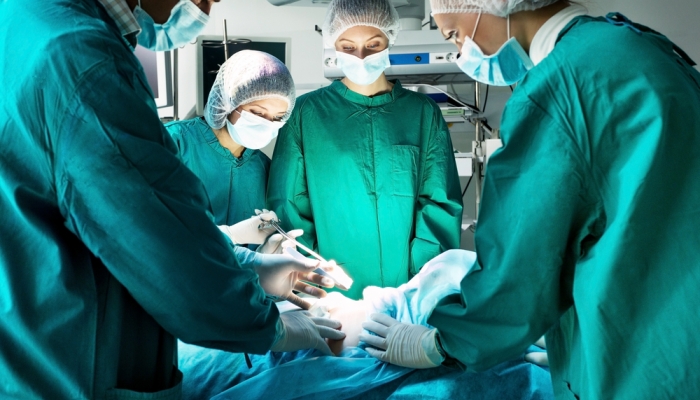Brachytherapy – Common Questions and Answers

Dr. Robert J. Cole, a radiation oncology partner at Specialty Surgical Center, specializes in brachytherapy (prostate seed implantation). He is currently the only seed implant specialist in New Jersey certified by Pro-Qura, a prestigious program developed by the Seattle Prostate Institute. Dr. Cole often gets asked a lot of questions about the brachytherapy procedure. Today, the team at Specialty Surgical Center is taking the time to answer some of those questions.
1. What are the “seeds” used during implantation?
When we talk about seed implantation, we are referring to pre-filled radioactive pods that are inserted into cancerous prostate tumors with a needle. In some cases, these pods may be inserted at intervals instead of all at once. The seeds are highly effective because they decay quickly, allowing the radiation to work from inside the tumor.
2. How long will I undergo treatment?
In some cases, if the tumor is more aggressive and fast-growing, physicians may use seeds that produce a larger quantity of radiation for a shorter duration. Other times, physicians recommend a different type of seed for slower growing tumors. Fortunately, patients do not require extensive downtime after this procedure. Most patients resume day-to-day activities in less than a week.
3. What happens to the seed after treatment?
After the seeds administer the radiation, they remain in the prostate. Removing the seeds has not been proven as beneficial or harmful to the patient. Therefore, a second procedure is not necessary to discard the seeds. Instead, the seeds may move on their own and fall into the bladder. A physician will provide patients with post-operative instructions on what to expect when these seeds are expelled through urine.
4. Are there any side effects to brachytherapy?
As with many prostate cancer treatments, patients who undergo brachytherapy are at risk of developing incontinence. This is particularly true for elderly men, but a physician will discuss risks on a case-by-case basis. In addition to incontinence, people may feel the urge to urinate frequently and experience a burning sensation as they go. If blood is found in the urine, there is no need to panic, as this is normal. However, patients should call Specialty Surgical Center immediately if larger clumps of blood are found after urinating.
At Specialty Surgical Center, we are happy to answer all questions so patients can feel prepared and ready for any radiation oncology treatment. If you have any questions or concerns about your treatment, please do not hesitate to call us.
Specialty Surgical Center is located in Sparta, New Jersey, and our staff consists of board certified surgeons and anesthesiologists performing procedures in Orthopedics, Sports Medicine, Spinal Care, Podiatry, Urology, Pain Management, ENT, Hand Surgery, Lithotripsy, Brachytherapy, GYN and Laser Surgery.
For more information about Specialty Surgical Center, call 973-940-3166 or visit our Contact Page.
The advice and information contained in this article is for educational purposes only and is not intended to replace or counter a physician’s advice or judgment. Please always consult your physician before taking any advice learned here or in any other educational medical material.